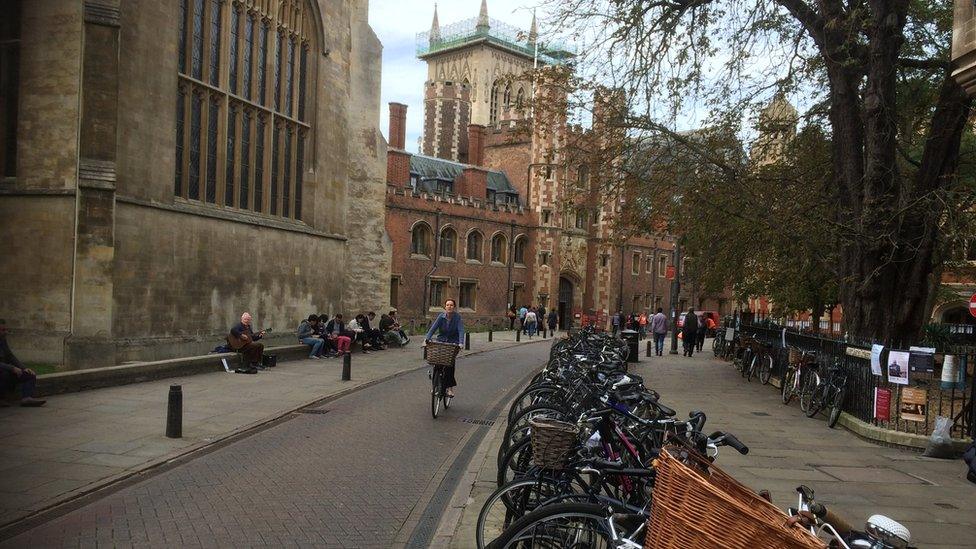Serious cycling accidents in Wales rise by 50%
- Published

Cambridge is seen as an example of good practice when it comes to promoting cycling
Serious cycling accidents in Wales have risen by 50% in the past five years, compared to the five years before.
On average, there were 107 crashes annually between 2011 and 2015 compared to 70 each year between 2006 and 2010.
Cycling charity Sustrans said the increase in cyclists on the roads meant the lack of facilities was becoming increasingly obvious.
The Welsh Government said it was spending millions of pounds promoting safe cycling.
Cyclist Garry Ellis from Rhostryfan, Gwynedd, said the rule in the Highway Code which states vehicles must leave "plenty of room" when passing riders needed to be more specific.
"I ride a lot in Spain and France and vehicles there have to leave at least a 1.5 metre gap between them and bikes when overtaking. Because it's the law, people stick to it."
Garry Ellis said he wanted to see a more continental approach to cycling safety
From 2011-2015, 536 cyclists were seriously injured, up from 350 between 2006 and 2010. In the same time, deaths went up from 24 to 27.
Wales spends £4 per head on cycling and walking compared to £20 per head spent in the Netherlands, where cycling is much more common.
Olympic gold medal-winning cyclist Owain Doull, from Cardiff, said: "Cycling is such a big sport in the UK now and we need to facilitate that by keeping them safe, especially with cycle lanes and cycling roundabouts.
"If you look at Holland and Belgium the system they have there is amazing."
Natasha Withey, of Sustrans, told Radio Cymru's Manylu programme that a survey carried out in Cardiff in 2015 suggested 78% of people wanted more money spent to improve safety and introduce bike lanes.
"There are roads and areas where it's really difficult for cyclists," she added.
Cities like Cambridge have a reputation for being cyclist-friendly - about 33% of people ride their bike to work there compared to 4% in Cardiff, which has the highest figure in Wales.
Cambridge's local authority employs 12 full-time officers to look after its biking policies and network compared to one in Cardiff.
In 2013, the Welsh Government introduced an act which required councils to consider all requests from the public regarding improving opportunities for people to walk and cycle.
A spokesman said: "In 2016-17, we have allocated over £11m for local schemes, as well as £1.65m for those on trunk roads.
"Additionally, we're spending over £1.7m on active travel training and promotion. This includes funding for Sustrans to promote active travel in schools, support people to get to work in sustainable ways."
- Published4 June 2015